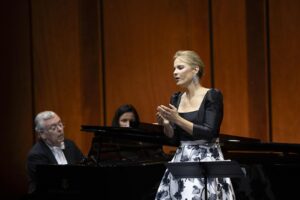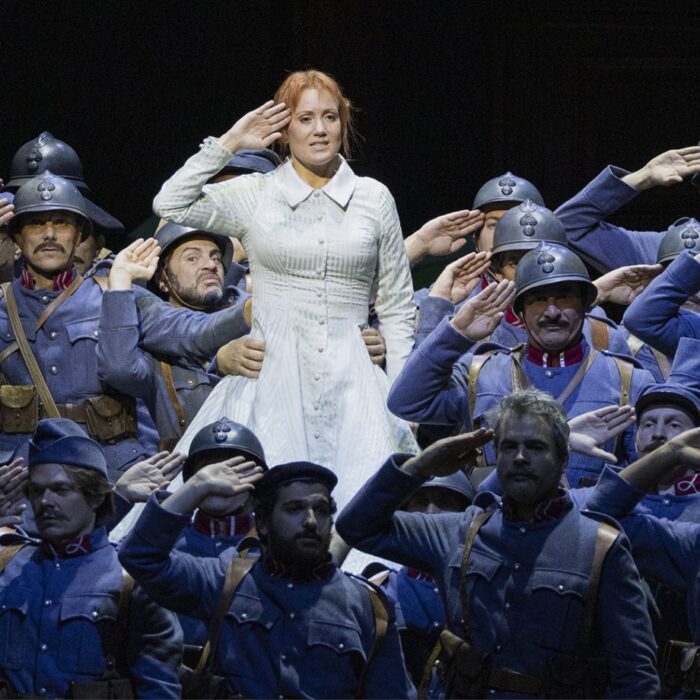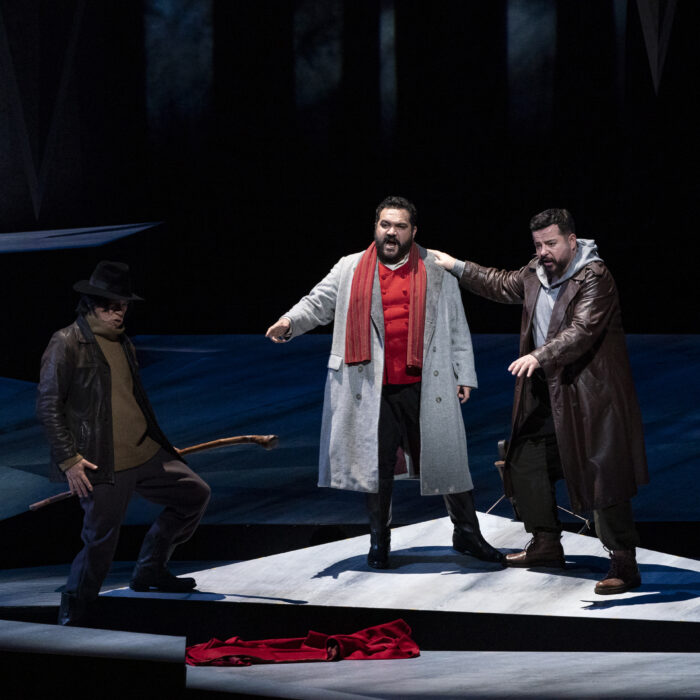
Festival d’Aix-en-Provence 2024 Review: Elīna Garanča & Malcolm Martineau in Recital
By João Marcos Copertino“Dignifed” is perhaps the best word to define Elīna Garanča and Malcolm Martineau’s recital. At a time when recitals have become more and more either causal occasions or rallies for a pressing cause, the Latvian mezzo-soprano reminds us of the ennobling power of music itself.
Such elevation sentiment comes along with Garanča and Martineau’s fairly intellectual nature. This duo thinks things through—sometimes even too much. Their Habanera from Carmen was made of marble: she did not move one inch outside of her bodily elegance, and he was always extremely attentive to her dynamics, mimicking all her pianissimi. Even caged birds move more freely. Still, this was the essence of their show: precision, attention, control.
Their setlist was extremely well composed, largely presenting songs that articulated love with confined and reflexive music. Only in the second half did we experience bigger emotional outbursts with some Rachmaninoff romanzas.
Garanča was a bit slow to warm up at the beginning of each part of the recital; it takes up to a lied and a a half for her fully to engage her beautiful legato and smooth tone. Therefore, fan-favorites Brahms’s “Liebestreu” and Strauss’s “Zueignung” became okay amuse-bouches for the fine dinner that was about to be served.
But when everything is moving, few mezzo-sopranos can tackle such difficult Lieder repertoire better than Garanča. With the amazing playing of Martineau, I was ecstatic when they performed Brahms’ “Von ewiger Liebe.” Their rendition of Strauss’s “Berfreit” had one of the best exclamations of sorrowful joy in the final “O Glück!”
The intellectuality of the night was made particularly evident in the thoughtful way Garanča created different voices within her own to perform each Lied. It was quite compelling a performance in terms of narration, which was especially striking for me in languages that I do not know (such as Latvian and Russian). Even so, I could follow the story; she enacted voices, but I never felt she was acting.
Still as regards Garanča’s thoughtfulness, she added songs by Latvian composers Alfrēds Kalniņš, Jānis Mediņš, and Jāzeps Vītols that truly enchanted me with their sublimity and gentleness. Curiously enough, a few months ago, I went to Riga and my jaw dropped at seeing how great their visual arts were, especially at the turn of the twentieth century—the era of so-called symbolist painting. Now, after listening to Garanča, I am more than certain that it was great period for music as well. Mediņš’s “Nocturno” and “Ak, jūs atmiņas” stayed with me even during my dreams.
In her Rachmaninoff segment, Garanča got closer to her operatic self which is, still, very great to see. Such fine readings of “Outro” and “Son” were beautiful to see. And their “Ne poy, krasavitsa, pri mne” was extraordinary, especially Martineau’s amazing playing of the piano introduction.
Certainly, a fine recital to see where Garanča and Martineau’s musicianship fully blossomed. Perhaps it was not perfect—but what is perfect in life?


